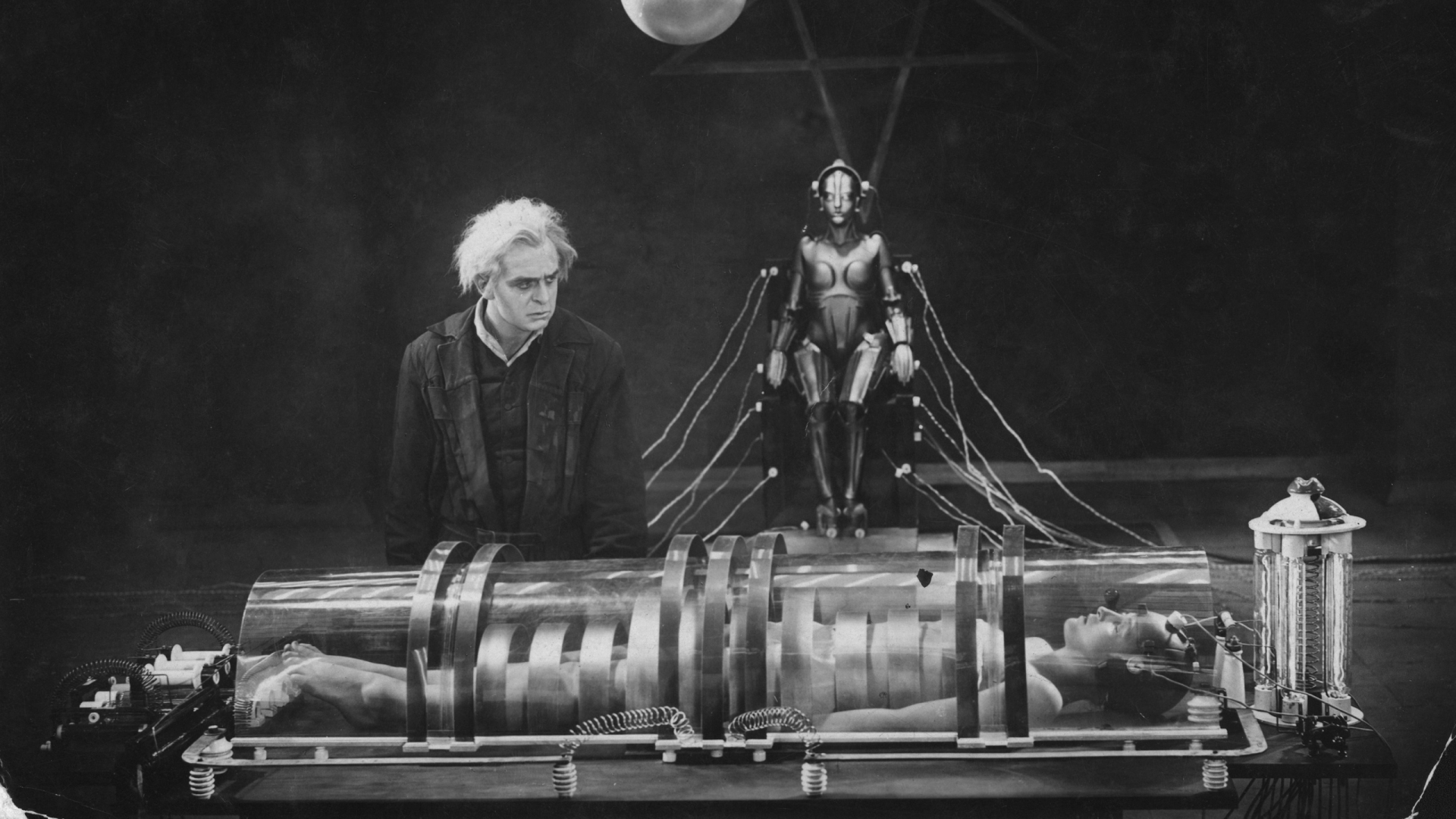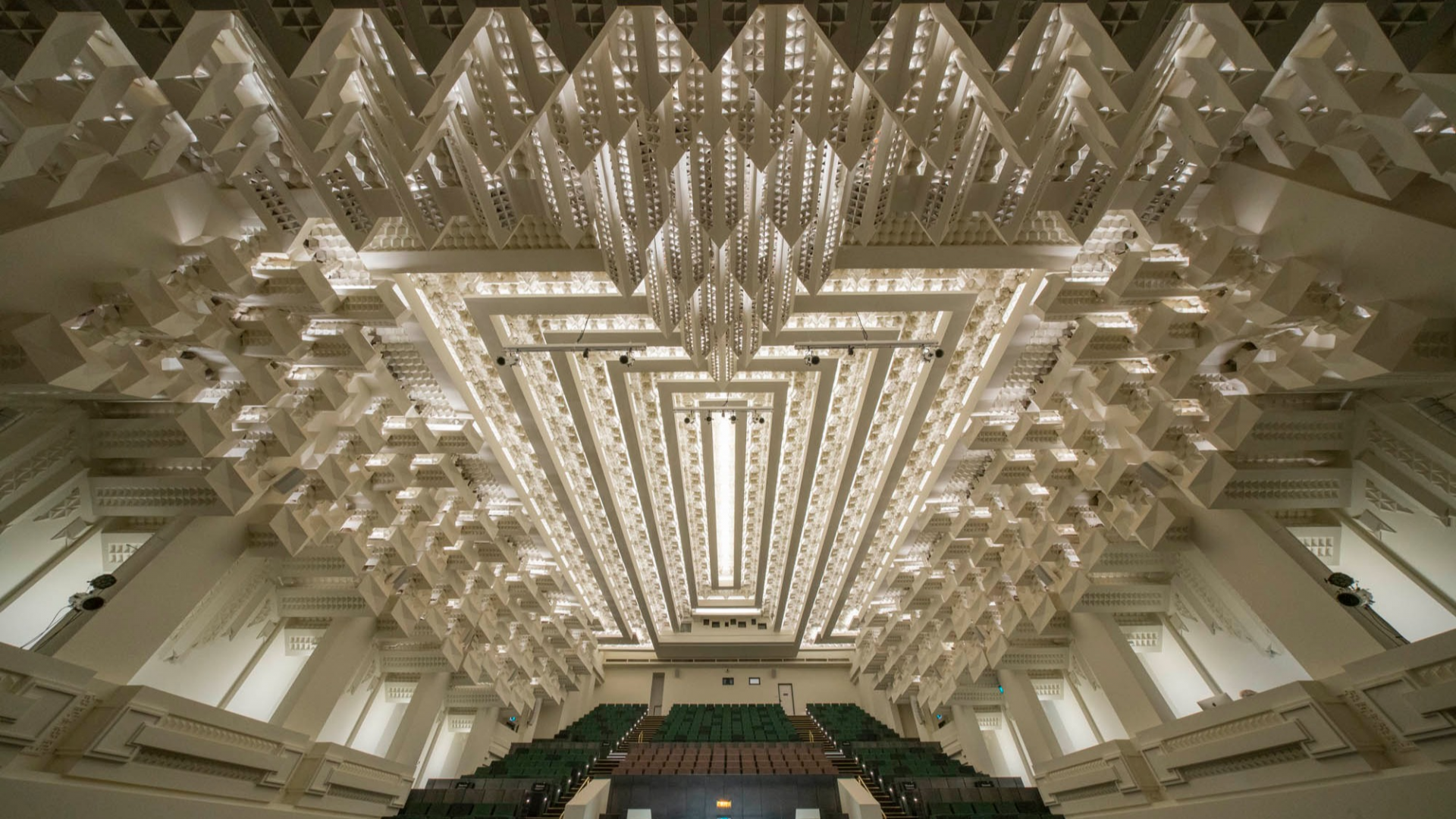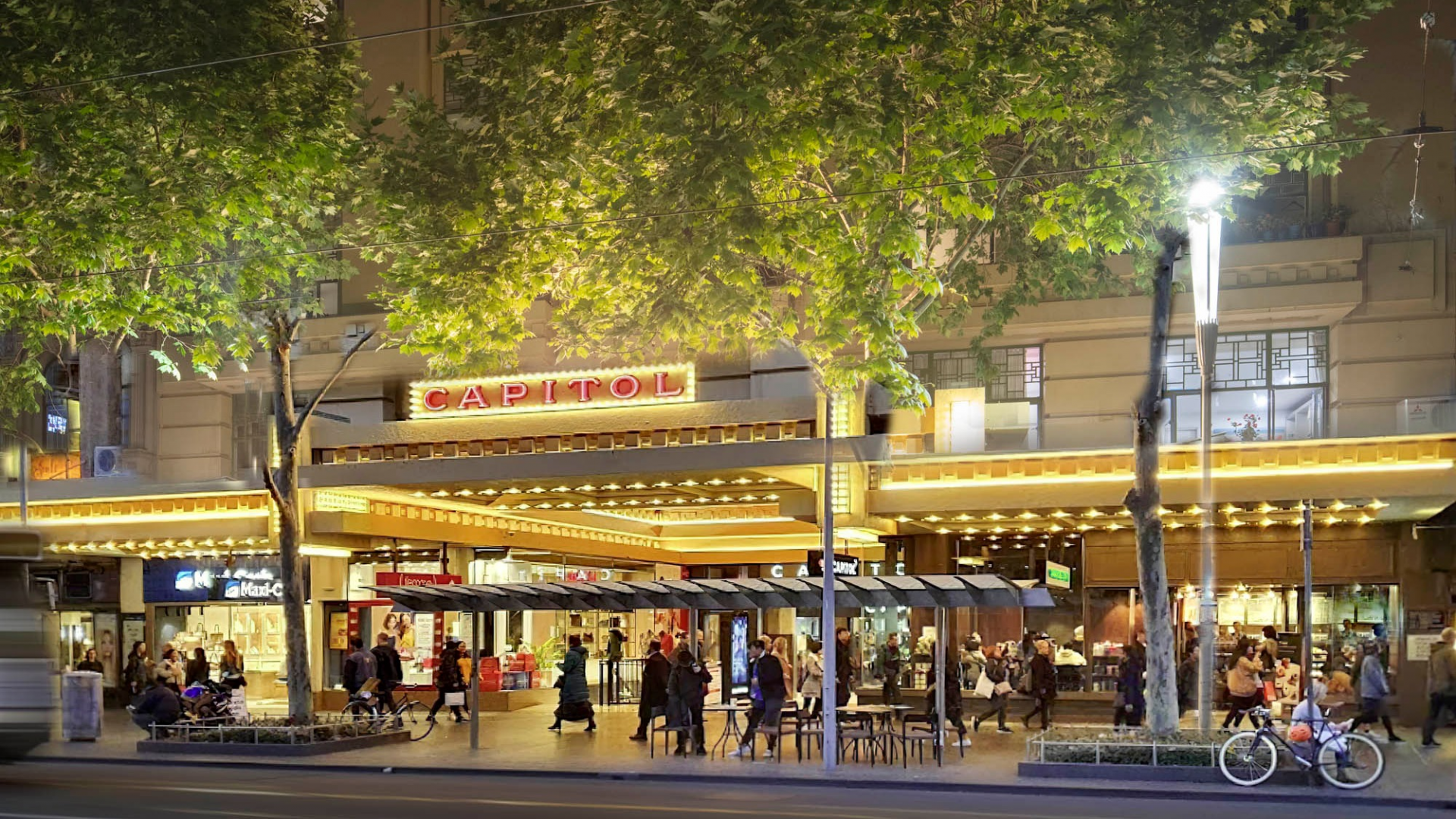Past Futures: Metropolis Past Event
The 1927 German expressionist science fiction classic directed by Fritz Lang.
In Lang’s influential science-fiction he presents a highly stylised futuristic city where a cultured utopia exists above a bleak underworld. When the privileged youth Freder discovers the grim scene under the city, he becomes intent on helping the mistreated workers.
One of the most seminal and iconic films in all cinema history, Metropolis both responded to the previous decade of German revolutionary praxis and foresaw what was to come in the 20th century and beyond. With elites living in the stratosphere above a spectacular high-rise concrete megalopolis, workers toil subterraneously and discontent brews, this is the ultimate portrayal of late capitalist society in megacities such as New York, Dubai, Shanghai or London. In its depiction of masses being led to a Moloch-like fire, it resembles the most monstrous aspects of World War 2. The film is rich in formal and thematic ideas that would characterise the German expressionist cinema and remains today the benchmark of cinematic production design.
Screening on 35mm
1927, 120 min, rating, 35mm, Germany, Silent with English intertitles, Director Fritz Lang, Cast Alfred Abel, Gustav Fröhlich, Brigitte Helm, Courtesy Murnau Stiftung.
Early arrivals are invited to explore the exhibitions in the upstairs Salon, Lounge and Loft (first in best dressed for exhibition viewing prior to the film due to capacity limits).
This film is part of The Capitol‘s Past Futures film program curated by Ghita Loebenstein and Michelle Carey.
In Past Futures we look at imagined dystopias and utopias that made their way into the collective conscious – into the design of now – and consider what might be in the making to come.
Videos
PAST FUTURES
Dystopias, Utopias and Back to Futurism on Screen
What futures were past filmmakers imagining for our present world? And did those sci fi prophesies come true? All dreamers and designers start from a place of deep imagining.
In Past Futures we look at imagined dystopias and utopias that made their way into the collective conscious – into the design of now – and consider what might be in the making to come.
In our selection of sci fi visionaries, some classic, others populist, and still others perhaps idiosyncratic, we look away from the stuff of shiny space wars, and towards a survey of the social, political, technological, environmental, interpersonal and existential prophesies dreamed onto the cinema screen over the last century.
To paraphrase Roger Ebert, these films offer “an arsenal of images for imagining the world.”
What worlds were filmmakers of the past envisioning for today? Which of these past-futures have materialised in shades of our lived realities? What do modern utopias and dystopias look like? Can cinema help us collectively design a world we want to see?
In curating this series my co-curator, Michelle Carey, and I considered the future worlds that filmmakers were envisioning in the past. In our selection you’ll find distinct visions from pasts that vary in length from way back to cinema’s silent beginnings, to just a moment or two ago.
The curated titles awakened a curiosity in us by way of each film’s aesthetic and philosophical design, some quixotic and wildly ambitious, others comparatively domestic while still suggesting a collective turn in consciousness or new ways of seeing and being.
Our present is very much felt and reflected in these past futures. What future visions are we projecting on screen, now?
Ghita Loebenstein, Creative Producer, The Capitol – RMIT University




